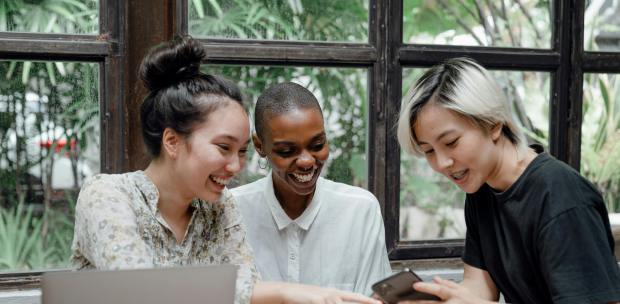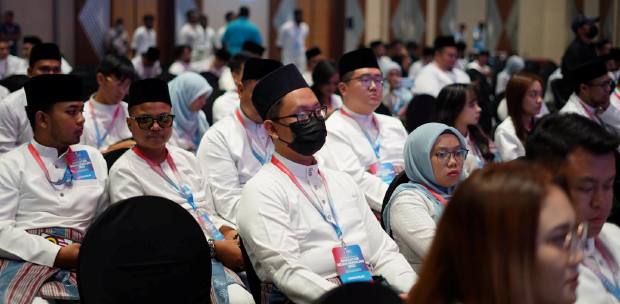Malaysia is the very definition of a melting-pot society.
But, as much as we proudly declare that we are a warm and hospitable people, our workplaces, much like the nation itself, are troubled with divisive prejudices. The gaps are more apparent as everyone reels from the economic aftermath of the Covid-19 pandemic.
Folks are struggling to put food on the table, and efforts are made by various quarters in the community to help the most displaced; yet we see favoritism at offices all over our country.
Being a multiethnic nation, naturally we will have many differences amongst the races. This sometimes translates to the workplace, too. But for most companies, it is vital for your very survival to forge an all-embracing unity, where all your team members work in tandem, in a "colour and gender blind" manner.
Many organisations have begun working on diversity and inclusiveness policies. This is where the composition of your race or gender, and the capacity of differently abled people are all taken together to form a complex yet cogent workplace tapestry.
People who lead organisations must focus on strengthening the ties that bind and unite us.
Unfortunately, sometimes these are the very same people who use our inherent partialities to enhance interracial differences to further their personal agendas.
But why do we have these prejudices in us and allow others to manipulate us?
Definitive research by Arne Roets and Alain Van Hiel of Ghent University in Belgium shows that at core, it is about fear. Their study found that prejudice stems from a deep psychological need.
People are uncomfortable with uncertainty and want to make quick and firm choices. But in doing so, are prone to making generalisations about others, which makes them prejudicial.
Because they need to reduce doubt and dispel their fears, they rely on the most obvious and often the first piece of information they get. Once they've made their mind up, even when you present them with facts that contradict that decision, they tend to ignore it.
For example, when you meet someone, you immediately see that person as being male or female, young or old, yellow or brown, without seeing any deeper. This form of simple social categorisation reduces the complexity in understanding them.
But the problem is that when you assume certain characteristics in people of a category, it leads to prejudice and stereotyping. You then judge a person based on what you already believe about any person in that social group.
If, say, you meet me for the first time, you will see that you are meeting an Indian man. If you just use pre-existing ideas about what you think Indian men are generally like, it becomes quite easy for you to form an opinion about me. You will immediately think of me as part of this group, and in your mind, I will behave in a particular manner. But in reality, I might be completely different.
This is fundamentally what happens at workplaces all over Malaysia. Colleagues tend to place you in a specific category - Malays, Chinese, Indians, Sabahans, Sarawakians or foreigners – and have preconceived mindsets on how you will behave. This the simplest way people catalogue others.
But it is from here that all the false stereotypes of certain races come from.
Diversity and inclusiveness programmes at work help us think differently. Your leaders and bosses need to craft policies that help breakdown these barriers. If you want a well-adjusted office that is a joy to work at, it is incumbent upon you, as an individual, to reduce our own propensity to typecast others.
Begin in your private life, and it follows on at your workplace. Consciously commit yourself to equality and fairness. Recognise that you may have unconscious prejudices towards a particular group or race. So, acknowledge your biases rather than ignoring them. Confront your preconceptions, and work through them.
Enthusiastically seek out friendships with people from different races at work and in your day-to-day life.
When you do this, you begin to increase your brain's familiarity with different groups of people, and expand your own horizons. If you live a blinkered life, you will repeatedly fall into the same racial traps.
People at work are different from you. But try to deliberately identify what qualities and goals you might have in common with them. Then, you can see them as fellow Malaysians who are your colleagues.
When you encounter situations of overt bias in the office, be brave and speak out against it. Stand up to any injustice that you see a workmate facing, especially if it is based on some prejudice. This helps create and reinforce a standard of behaviour for yourself, and for the people around you at work.
Accept that we are hardwired to act out our prejudices, so make the active choice to work consciously on reducing this tendency in you. This is how we make our workplaces effective so we can collectively achieve results.
Remember, it all begins with you!
Shankar R. Santhiram is managing consultant and executive leadership coach at EQTD Consulting. He is also the author of the national bestseller "So, You Want To Get Promoted?
The views expressed in this article are the author's own and do not necessarily reflect those of the New Straits Times






